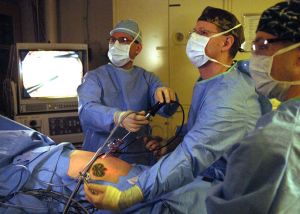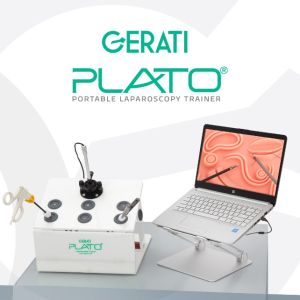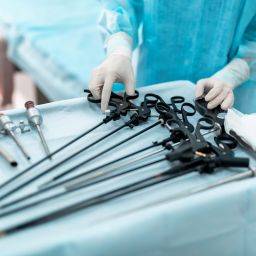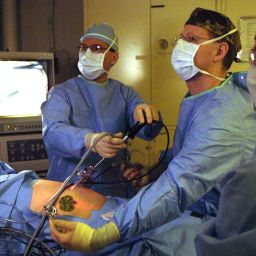How Can I Improve My Laparoscopic Skills
Welcome to our comprehensive guide on: How Can I Improve My Laparoscopic Skills.
Laparoscopy, a minimally invasive surgical technique that allows doctors to operate inside the abdomen without making large incisions. In this article, we’ll be discussing everything you need to know about laparoscopy and: how can I improve my skills in laparoscopic surgery. Whether you’re a medical student, a resident, or a seasoned surgeon looking to refine your techniques, this guide is designed to provide you with the knowledge and skills you need to perform laparoscopic surgery with confidence.
Understanding Laparoscopy
Laparoscopy is a minimally invasive surgical technique that allows doctors to operate inside the abdomen using a laparoscope, a thin, lighted tube with a camera attached to its end. During the procedure, the laparoscope is inserted through a small incision in the abdomen, allowing the surgeon to view the internal organs on a video monitor.
Laparoscopy has several advantages over traditional open surgery. It requires smaller incisions, resulting in less pain, scarring, and a faster recovery time. Laparoscopic surgery also reduces the risk of infection and bleeding, making it a safer option for patients.
Improving Your Skills in Laparoscopic Surgery
Becoming proficient in laparoscopic surgery requires a combination of knowledge, skills, and practice. Here are 14 steps to answer the question: How Can I Improve My Laparoscopic Skills.
- Understand the anatomy: Before performing laparoscopic surgery, it’s essential to have a solid understanding of the anatomy of the abdominal organs. You should be familiar with the locations and functions of the organs, blood vessels, and nerves in the abdomen.
- Learn the instruments: Laparoscopic surgery requires the use of specialized instruments, including a laparoscope, trocars, graspers, and scissors. Familiarize yourself with each instrument and its function.
- Practice hand-eye coordination: Laparoscopic surgery requires precise hand-eye coordination. Practice hand-eye coordination exercises to improve your dexterity and accuracy. Use of a Laparoscopic Training box or Laparoscopic Simulator is the best way to achieve this goal.
- Learn the camera controls: The camera attached to the laparoscope provides the surgeon with a clear view of the internal organs. Learn how to adjust the camera angle, focus, and zoom to get the best view.
- Master tissue handling: Tissue handling is critical in laparoscopic surgery. You must learn how to handle tissues gently to avoid tearing, bleeding, or damage to the surrounding organs.
- Use energy devices with care: Energy devices, such as electrocautery and ultrasonic devices, can be used to cut and coagulate tissues during laparoscopic surgery. However, they can also cause unintended injuries if not used with care. Make sure you understand how to use these devices safely.
- Follow a systematic approach: Laparoscopic surgery requires a systematic approach to ensure that all the necessary steps are completed in the correct order. Develop a routine and follow it consistently to improve efficiency and reduce errors.
- Learn how to troubleshoot: Laparoscopic surgery can be challenging, and unexpected problems can arise. Learn how to troubleshoot common issues, such as camera malfunctions, instrument failure, or bleeding.
- Get feedback: Feedback is essential to improve your skills in laparoscopic surgery. Ask for feedback from colleagues, mentors, and patients to identify areas for improvement.
- Participate in simulation training: Simulation training allows you to practice laparoscopic surgery in a controlled environment. It’s a safe way to improve your skills and gain confidence before performing surgery on patients.
- Attend workshops and conferences: Workshops and conferences are an excellent way to stay up-to-date on the latest laparoscopic techniques and best practices. Attend as many as possible to learn from experts and network with peers.
- Read medical literature: Reading medical literature, including textbooks, journal articles, and case reports, is crucial to improving your knowledge and skills in laparoscopic surgery. Stay current with the latest research and techniques to provide the best possible care to your patients.
- Seek out mentorship: Mentorship is a valuable resource for anyone looking to improve their skills in laparoscopic surgery. Find a mentor who has experience in laparoscopic surgery and can provide guidance and support as you develop your skills.
- Practice, practice, practice: Finally, the most crucial step in improving your skills in laparoscopic surgery is to practice. The more surgeries you perform, the more comfortable and confident you will become. Continuously seek opportunities to practice and refine your techniques.
Conclusion
Laparoscopic surgery is a valuable technique that offers several advantages over traditional open surgery. By following the steps outlined in this guide, you can answer the question of: How Can I Improve My Laparoscopic Skills and provide the best possible care to your patients. Remember to stay up-to-date with the latest research and techniques, seek out mentorship and feedback, and continuously practice to refine your skills. With dedication and hard work, you can become a skilled laparoscopic surgeon and deliver excellent patient care.






